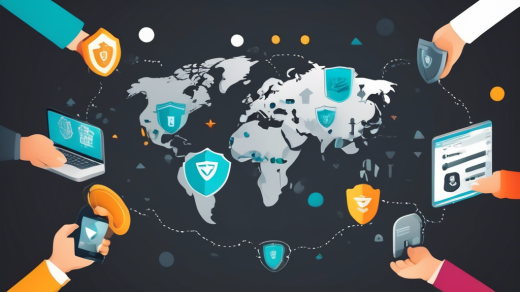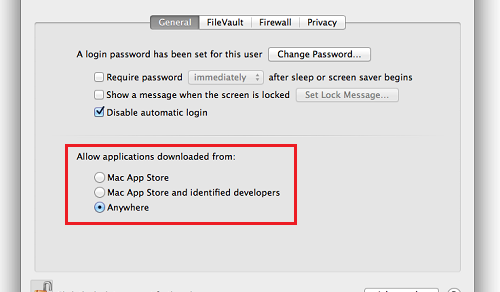Introduction: Understanding the Benefits of Private Internet Access
In today’s digitally-driven world, safeguarding your online privacy has become more critical than ever. With the rise in cyber threats and data breaches, ensuring your digital footprint remains secure is paramount. This is where private internet access comes into play. But what exactly is private internet access, and how can it enhance your online experience?
In this comprehensive guide, we delve deep into the concept of private internet access, its significant benefits, and how to select the best provider tailored to your needs. Whether you’re looking to protect your personal data, access global content without restrictions, or guard against potential cyber threats, understanding the ins and outs of private internet access is essential.
Join us as we explore the world of private internet access and uncover how it can be a game-changer in maintaining your online privacy and security.
What is Private Internet Access? An Overview
Definition and Concept of Private Internet Access
Private Internet Access (PIA) refers to the use of Virtual Private Networks (VPNs) to create a secure, encrypted connection over the internet. This ensures that your online activities are shielded from prying eyes, hackers, and any other third parties that might want to monitor or intercept your data. By masking your IP address and routing your internet traffic through secure servers, PIA offers a layer of privacy and security that is becoming increasingly essential in the digital age.
Importance of Private Internet Access in Today’s Digital World
In today’s interconnected world, maintaining online privacy is more critical than ever. With the rise of cyber threats, data breaches, and invasive tracking by both governmental bodies and private corporations, private internet access provides individuals with the ability to take control over their digital footprint. Masking your online activities can prevent targeted advertising, identity theft, and unauthorized data collection. It empowers users to browse the web securely and anonymously, ensuring that their personal information remains private and their digital communications are protected.
How Private Internet Access Works: An Inside Look
At its core, private internet access works by utilizing VPN technology. When you connect to a VPN service, it creates an encrypted tunnel between your device and the VPN server. Here is a step-by-step breakdown of the process:
- Connection to a VPN Server: When a user activates their VPN client, they select a server to connect to. This server can be located anywhere in the world, granting users flexibility in choosing their virtual location.
- Encryption of Data: Once the connection is established, the VPN client encrypts all data sent from the user’s device. This encryption makes it incredibly difficult for any unauthorized entity to access or read the transmitted information.
- Routing through the VPN Server: The encrypted data then travels through the secure tunnel to the VPN server. The server acts as an intermediary between the user and the internet, masking the user’s IP address and replacing it with the server’s IP address.
- Data Decryption and Forwarding: The VPN server decrypts the data and forwards the request to the internet. Any response from the internet follows the reverse path, being encrypted by the VPN server before being sent back through the tunnel to the user’s device, where it is decrypted by the VPN client.
This process ensures that anyone trying to intercept your data will only see an encrypted stream, and your identity and location remain hidden behind the VPN server’s IP address.
Private internet access is thus not just a tool but a necessity in an era where digital privacy is constantly under threat. By understanding how it works, individuals, businesses, and organizations can make more informed decisions about their online security and privacy.
Key Advantages of Using Private Internet Access
Enhanced Online Privacy and Anonymity: Protecting Your Identity
In an era where digital surveillance and data breaches are increasingly common, private internet access serves as a formidable tool to protect your online identity. By employing encrypted connections, it shields your personal data from cybercriminals, hackers, and even government agencies. When you access the internet through a private network, your IP address is masked, making it difficult for third parties to trace your online activities back to you. This layer of anonymity ensures that your browsing history, personal information, and online communications remain confidential, offering peace of mind in your digital interactions.
Improved Cybersecurity: Safeguarding Against Threats
Private internet access significantly bolsters your cybersecurity measures. It provides a secure tunnel for your online transactions, ensuring that sensitive data such as banking information, credit card numbers, and personal identifiers are encrypted and protected from malicious entities. VPNs (Virtual Private Networks), which are a common component of private internet access, include robust security protocols that defend against various cyber threats including man-in-the-middle attacks, phishing, and malware. By continuously updating these protocols and employing cutting-edge technology, private internet access services mitigate the risk of cyber-attacks, thereby enabling a safer online environment for both individuals and businesses.
Unrestricted Access to Global Content: Bypassing Geo-Restrictions and Censorship
Another substantial benefit of private internet access is the ability to bypass geo-restrictions and internet censorship. Many streaming services, websites, and online platforms restrict content based on geographical locations. With private internet access, you can circumvent these limitations and gain access to a world of global content. By routing your internet connection through servers located in different countries, these services enable you to appear as though you are browsing from any location you choose. This not only enhances your entertainment options but also ensures that you have unrestricted access to information and resources, fostering a more open and inclusive internet experience.
Conclusion
The key advantages of using private internet access underscore its essential role in today’s digital landscape. From enhancing privacy and protecting against cyber threats to providing unrestricted access to global content, the benefits are multifaceted and significant. As digital privacy concerns continue to rise, adopting a reliable private internet access service can provide comprehensive protection and a more enriching internet experience. By understanding these advantages, individuals and businesses alike can make an informed decision to safeguard their online presence.
How to Choose the Best Private Internet Access Provider
Criteria for Selecting a Reliable Private Internet Access Service
Choosing the best private internet access provider can significantly impact your online security and experience. To ensure that you select a reliable service, it’s essential to consider several criteria. These factors will help you differentiate between various providers and make an informed decision.
1. Security Protocols: Look for providers that offer robust security protocols such as OpenVPN, WireGuard, or IKEv2/IPsec. These protocols ensure that your data is encrypted effectively, reducing the risk of breaches.
2. No-Log Policy: A strict no-log policy implies that the provider does not store any of your online activities. This aspect is crucial for maintaining your privacy. Always review the provider’s privacy policy to ensure they adhere to this practice.
3. Server Locations: The number and location of servers can affect your browsing speed and ability to access content from different regions. A good private internet access provider should offer a vast network of servers in multiple countries.
4. Connection Speed: Speed is a critical factor, especially if you indulge in activities like streaming, gaming, or torrenting. Opt for a provider known for high-speed connections without throttling bandwidth.
5. Compatibility: Ensure the service is compatible with various devices and operating systems like Windows, macOS, Android, iOS, and Linux. Also, check if they support multiple simultaneous connections.
6. Customer Support: Reliable customer support can be a lifesaver when you encounter issues. Check if the provider offers 24/7 support through multiple channels such as live chat, email, or phone.
7. Pricing Plans: Compare the pricing plans offered by different providers. Look for those that offer flexible, affordable plans, and consider if they provide a money-back guarantee, which allows you to test the service risk-free.
Comparing Popular Private Internet Access Providers
Once you’ve established the essential criteria, the next step is to compare popular private internet access providers. Here are some well-known providers and how they stack up:
1. ExpressVPN: Known for its excellent speed and strong encryption methods, ExpressVPN operates over 3000 servers in 94 countries, making it one of the most versatile providers. It has a strict no-log policy and supports multiple devices. However, it is relatively pricier compared to others.
2. NordVPN: This provider offers a robust set of features, including a double VPN for extra security and a no-log policy. With over 5400 servers in 59 countries, it ensures fast and stable connections. NordVPN is also budget-friendly and offers 24/7 customer support.
3. CyberGhost: Known for its user-friendly interface, CyberGhost offers over 6800 servers in 89 countries. It provides strong security features, including a no-log policy. This service is particularly attractive due to its extended money-back guarantee and affordable pricing plans.
4. Surfshark: Offering an unlimited number of simultaneous connections, Surfshark is a standout option for families or multiple device users. It maintains a strict no-log policy and operates over 3200 servers in 65 countries. Surfshark is also one of the more cost-effective options on the market.
Tips for Maximizing Your Private Internet Access Experience
After selecting a private internet access provider, optimizing your experience is key to fully leveraging its benefits. Here are some tips on how to maximize your usage:
1. Regularly Update Software: Always keep your VPN software updated to the latest version to benefit from new features and security patches.
2. Use the Closest Server: For improved speed and performance, connect to the server nearest to your location. However, if you need to bypass geo-restrictions, select a server in the desired country.
3. Enable Kill Switch: Most providers offer a kill switch feature, which automatically disconnects your device from the internet if the VPN connection drops. This helps prevent accidental exposure of your real IP address.
4. Regularly Clear Cache and Cookies: Clearing your browser’s cache and cookies can help avoid issues with blocked websites and ensure that your private browsing sessions remain secure.
5. Use Split Tunneling: Split tunneling allows you to route some of your device’s traffic through the VPN and the rest through your regular internet connection. This is useful for accessing local content while simultaneously protecting specific activities.
6. Opt for Multi-Factor Authentication (MFA): If your VPN provider offers MFA, enable it for an additional layer of security beyond just your password.
7. Monitor Data Usage: Some VPNs have data limits, especially on mobile plans. Keep an eye on your data usage to avoid unexpected overages or throttling.
In conclusion, by carefully evaluating private internet access providers based on key criteria, comparing the top options, and following best practices for usage, you can significantly enhance your online privacy and security. Investing in the right service will not only protect your digital footprint but also provide a seamless and unrestricted internet experience.
Conclusion
Embracing the Future with Private Internet Access
In an era where our digital footprints can be easily traced and our online activities are subject to prying eyes, private internet access (PIA) emerges as an essential tool for maintaining privacy and security. By offering enhanced online privacy, robust cybersecurity measures, and the ability to bypass geo-restrictions and censorship, PIA amplifies the digital experience, allowing users to enjoy the internet without limitations.
Choosing the right private internet access provider requires careful consideration of various factors, including reliability, speed, user-friendliness, and level of security. Comparing popular providers and following expert tips can help users find a service that meets their needs and maximizes their online protection.
As we continue to navigate the complexities of the digital age, the importance of safeguarding our online presence cannot be overstated. Private internet access provides the means to achieve this, ensuring that our data remains private and our internet freedom is preserved. Embrace the future securely and explore the boundless possibilities that private internet access has to offer.



